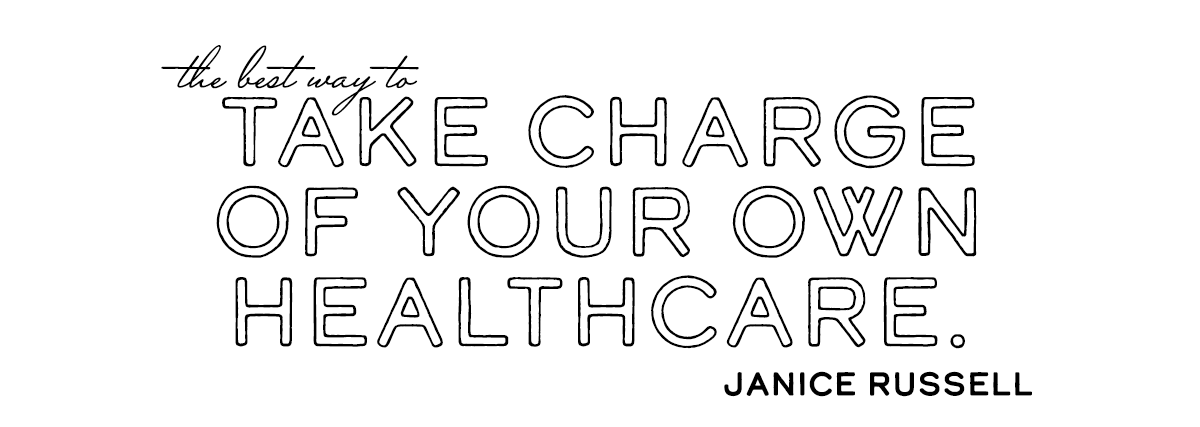
The Best Way to Take Charge of Your Healthcare

The healthcare industry of the United States is a $3.5 trillion industry that has been growing for decades. It's a system with which all Americans need to be familiar, especially as the number of people living longer and the number of people living with chronic diseases increase.
In order to take charge of your own healthcare, you need to advocate for yourself and understand your rights as an individual. You should also have a good understanding of how to care for your own health and well-being.
Take Charge of Your Health
Diet and exercise are the two main aspects of a healthy lifestyle. Most of us know what we have to do, like eat more fruits and vegetables, stay away from refined sugars and processed foods, drink more water, and get 30 minutes of exercise every day.
The hardest part is getting started, and the second hardest part is staying motivated. But the good news is that there are plenty of apps and tools to help with just that.
My Fitness Pal is a great calorie counter with thousands of foods in its database. It takes you less than 5 minutes a day to track your diet and exercise, meaning it’s a quick habit to get into.
Fitbit is good for tracking your steps and day-to-day activity. You can use it to log the food you eat via its barcode scanner and see your meal history at a glance. Water intake and sleeping patterns can also be tracked.
MyNetDiary is not a free app, but you may find that it’s worth the investment. You set a weight goal and the app analyzes your diary, calculates the targets you’ve set, and provides you with personalized advice and diet tips.
Keep Track of Your Health
Keeping track of your medical records is important for many reasons. It allows you to know what medications you are taking, what diseases you have been diagnosed with, if there are any side effects that you need to be aware of, your health status, and allergies. It's also important to know when you have a new doctor, nurse practitioner, or physician assistant so that you can update your records accordingly.
Keeping track of your medical records is also important because it helps prevent identity theft and health insurance fraud.
Many people are not aware of the importance of keeping a paper copy of their medical records as a backup in case you or someone close to you gets sick. This includes doctors’ notes, prescriptions, lab results, and insurance papers. Securely store these documents in a fireproof document safe with a combination lock that only you and a trusted family member or colleague can open.
But you’ll also want to store them online so you can access them from anywhere. Instead of using many files, you can utilize a PDF merging tool to keep all your documents in one file, which will cut time on having to find a document. A PDF merger could be used to combine PDF files so that you can move PDF pages to keep your medical records in the right order.
Get a Second Opinion
You might be hesitant to seek a second opinion from your doctor. However, it may be important to secure one in some circumstances, such as the diagnosis of a new significant medical condition or the recommendation of an elective surgery or other major intervention. The process of getting a second opinion can be intimidating, but it can help the patient and family be more confident in selecting a treatment plan.
Reach out to your insurance carrier for a list of providers in your network that specialize in the area you’re concerned about. Avoid potential conflicts of interest by not requesting a second opinion from a colleague or partner of the physician who provided the “first opinion”.
Understand How to Get Insured
If you’re not covered with an employer plan and are not eligible for Medicaid or Medicare, you can and are, in fact, required to be covered with the Patient Protection and Affordable Care Act. Use this link to see if you qualify for coverage under the PPACA.
An Informed and Assertive Advocate
You are your best and most important health care advocate. By understanding how to protect your health, keep track of your records, and receive affordable health insurance, you can make sure you’re never in the dark about the most important part of your life, your health and well-being.
If for any reason, you cannot fill the role of the informed and assertive health care advocate, seek out a trusted relative or friend who is willing and able to take on this responsibility for you, including accompanying you to your health care visits.
The Southern Medical Association is an organization whose mission is to support the well-being of its communities. If they don't have the answer to your health concern, they probably know someone who does. It's about their patients. It's about family. And, as they state, “Nothing is more important than that."
